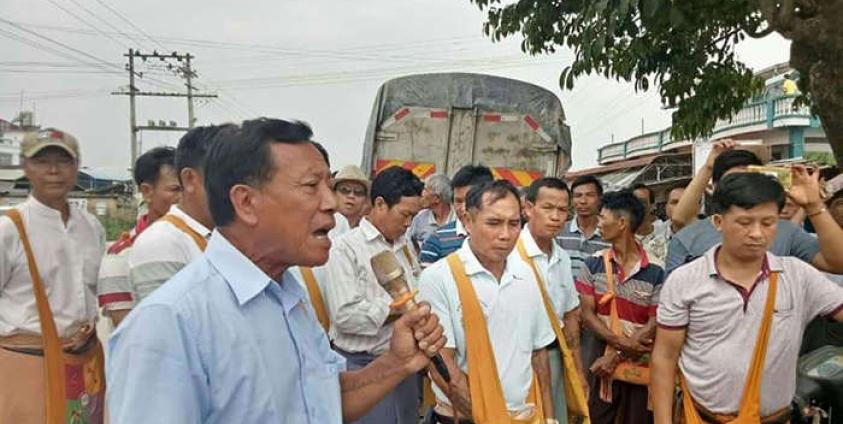Around 200 people were present to discuss land registration and ownership.
Farmers in Namkham, northern Shan State, held a protest on Tuesday against the manager of the township’s agricultural department for failing to give them access to a building where they were going to hold a meeting.
The demonstration was held at 9:00 a.m. on Tuesday at a hall belonging to the agricultural department where the meeting was scheduled to have been held. Farmers accused the manager, U Aung Soe Oo, of failing to uphold his promise because he disapproved of the activities of the farmers’ association.
Secretary of the Namkham Township farmers association Sai Aung Myin told SHAN that the meeting was going to be held to explain Burma’s “Form 7” land ownership documents to around 200 locals. The meeting followed a visit by the Shan State chief minister to Namkham on March 5, in which farmers were instructed to register their land with the land management committee.
Sai Aung Myin said that the meeting had already been discussed with U Aung Soe Oo, who had reportedly suggested that his department’s office could be used for the activity.
“They didn’t come to open the padlock when our meeting time came. They told us that they wouldn’t allow us to use the hall when our meeting was about to start,” Sai Aung Myin explained. “We responded that we were going to protest against him,” he added, referring to U Aung Soe Oo, who reportedly still refused to open the door.
The meeting was later held at the residence of Sai Yee Htun, chairperson of the Namkham farmers association.
Those present released a statement calling on the agriculture department to return this hall to the farmers, who built it in 1981. It is informally known as “Camp No. 3” and were built with profits made from selling fertilizer, farmers said. There are also Camps No. 1, 2 and 4 in other wards throughout Namkham.
The government confiscated these camps in 1988. When the Namkham Township farmers association registered in 2016, they demanded that the Union government allow these halls to be used by farmers by 2017. A failure to transfer the power over the camps to the farmers would lead to protest, they warned.







